METODOLOGIA PARA EL ANALISIS DE MERCADOS AGROPECUARIOS(BARRERAS ISLAS, DANIEL / CHALITA TOVAR, LUIS )

Breve historia económica de la agricultura (Federico, Giovanni)
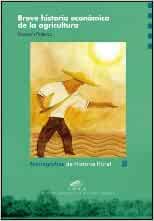
Do not disturb Barceló (Buades, Joan)

Industrialización en España (1760-1960) (Almenar, Salvador)

Los productos comerciales, 1 (Alessandri, Paolo Emilio)

Del metal al motor (Amengual Matas, Rafael Rubén / Cayón Garía, Francisco / Cubel Montesinos, Antonio / García Ruíz, José Luís / Germán Zubero, Luis / Goñi Mendizábal, Igor / Martínez Ruíz, José Ignacio / Muñoz Rubio, Mi)

Sector agroalimentario: Ciberseguridad y desarrollo sostenible (Calzadilla Medina, María Aránzazu / Capote Pérez, Luis Javier / Cosialls Ubach, Andrés Miguel / Doménech Martínez, Gloria / Gamazo Chillón, Juan Carlos / Martínez Llorente, Félix / Moreno Mozo, Fernan)
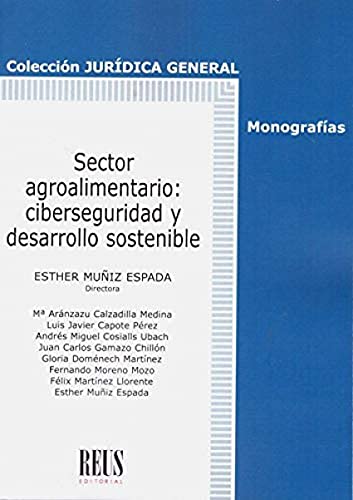
Diccionario de turismo (Montaner Montejano, Jordi / Antich Corgos, Jorge / Arcarons Simón, Ramón)

Empresas de intermediación turística y nuevas tecnologías (Esteban Alberdí, Cristina / Rubio Andrada, Luis)

Derecho agroalimentario y ciberseguridad (Muñiz Espada, María Esther)

En páramos malditos (Roa Llamazares, César)

PRODUCCIÓN Y TRANSFORMACIÓN DE HORTALIZAS EN LA ZONA DE INFLUENCIA DE CUELLAR
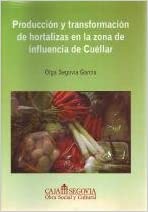
THE REASON WHY: THE POST CIVIL-WAR AGRARIAN CRISIS IN SPAIN
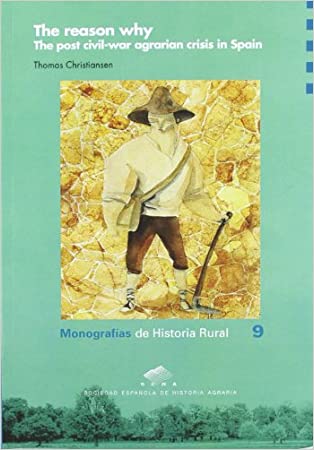 This book analyses the influence of Francoist policy on agricultural output in the 1939-55 period. The focus is on the wheat, olive and wine sectors and special attention is given to small-scale farmers. Agrarian policy for wheat and olive oil included pricefixing, production quotas and rationing of consumption. Producers and consumers circumvented intervention by creating a black market. When earnings from the black market are included, value of output per unit of land remained close to pre-war levels. It is then concluded that the decrease in wheat output was caused by lack of draught animals and fertilisers rather than state intervention. Intervention in the wheat sector was therefore desirable from a social viewpoint but the system could have been improved significantly. Average olive oil output only fell below the pre-war level immediately after the war. Consequently, state intervention was unnecessary after 1942-43 and could have been abolished long before it was finally done in 1952. In the wine sector, policy aimed at increasing farm prices rather than decreasing consumer prices. Table wine consumption declined after the war but this was counteracted by higher demand for high-alcohol white wine for the production of brandy and industrial alcohol. Consequently, the analysis shows that similar kinds of intervention led to quite different result in terms of production, as demonstrated in the cases of wheat and olives. On the other hand, different types of intervention led to similar results in production for olives and vines
This book analyses the influence of Francoist policy on agricultural output in the 1939-55 period. The focus is on the wheat, olive and wine sectors and special attention is given to small-scale farmers. Agrarian policy for wheat and olive oil included pricefixing, production quotas and rationing of consumption. Producers and consumers circumvented intervention by creating a black market. When earnings from the black market are included, value of output per unit of land remained close to pre-war levels. It is then concluded that the decrease in wheat output was caused by lack of draught animals and fertilisers rather than state intervention. Intervention in the wheat sector was therefore desirable from a social viewpoint but the system could have been improved significantly. Average olive oil output only fell below the pre-war level immediately after the war. Consequently, state intervention was unnecessary after 1942-43 and could have been abolished long before it was finally done in 1952. In the wine sector, policy aimed at increasing farm prices rather than decreasing consumer prices. Table wine consumption declined after the war but this was counteracted by higher demand for high-alcohol white wine for the production of brandy and industrial alcohol. Consequently, the analysis shows that similar kinds of intervention led to quite different result in terms of production, as demonstrated in the cases of wheat and olives. On the other hand, different types of intervention led to similar results in production for olives and vinesLA POLÍTICA TURÍSTICA . GOBIERNO Y ADMINISTRACIÓN TURÍSTICA EN ESPAÑA (1952-2004
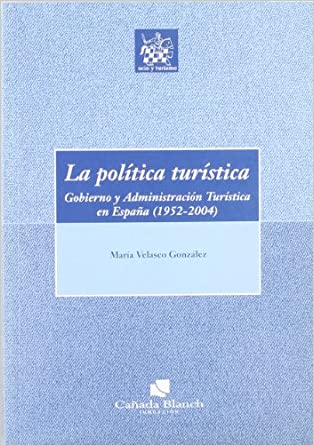 Índice de cuadros Prólogo Introducción 1. Aproximación al marco teórico 2. El objeto de nuestro estudio 3. Diseño y metodología de la investigación 4. Estructura del libro Primera Parte Los conceptos Introducción Capítulo 1 El sistema turístico 1. Las ac
Índice de cuadros Prólogo Introducción 1. Aproximación al marco teórico 2. El objeto de nuestro estudio 3. Diseño y metodología de la investigación 4. Estructura del libro Primera Parte Los conceptos Introducción Capítulo 1 El sistema turístico 1. Las acCAFÉ AMARGO
 Cien millones de personas en el mundo viven del cultivo y la manipulación del café, la materia prima más lucrativa después del petróleo. Sin embargo, una proporción ínfima del precio que pagamos en el Norte como consumidores va a parar a los trabajadores del Sur, cuyas condiciones sociales y laborales en las plantaciones están lejos de cumplir unos códigos éticos y dignos que favorezcan su calidad de vida.
Cien millones de personas en el mundo viven del cultivo y la manipulación del café, la materia prima más lucrativa después del petróleo. Sin embargo, una proporción ínfima del precio que pagamos en el Norte como consumidores va a parar a los trabajadores del Sur, cuyas condiciones sociales y laborales en las plantaciones están lejos de cumplir unos códigos éticos y dignos que favorezcan su calidad de vida.